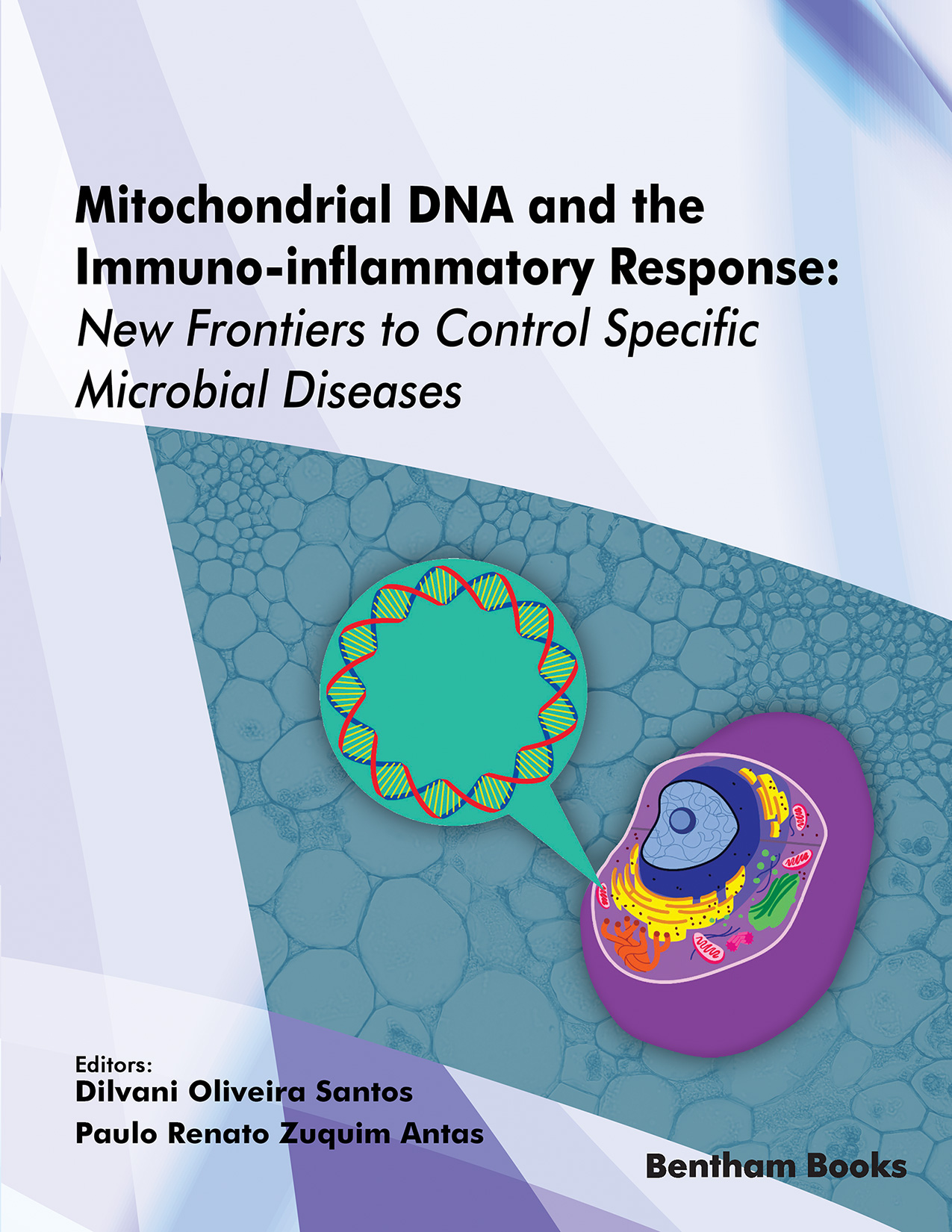The first cases of the infection caused by the virus SARS-Cov-2 were reported in December, 2019, in China, hence the name of the disease: COVID-19 (Corona Virus Disease, year 2019). The world saw the emergence of a global pandemic in 2020, which still poses a threat to global health in 2021, despite the recent mass vaccination. In some countries like the USA, Brazil and India, the number of deaths is still worrisome. The most important lesson learnt from this disease is its destructive potential of triggering a sudden and uncontrolled inflammatory response to the virus, which can rapidly decimate populations worldwide. That was our biggest motivation for choosing the topic Mitochondrial DNA and the Immuno-inflammatory response: new frontiers to control specific microbial diseases as the second volume in the book series "Frontiers in Inflammation".
Our objective is to present to the reader a book on the topic of "inflammation" in its broadest sense, including relatively recent scientific discoveries concerning the active participation of a cell organelle—mitochondria—and its respective constituents, mainly mitochondrial DNA (mtDNA), in the immuno-inflammatory responses. It is worth mentioning that, coincidently, this organelle was studied by James P. Allison, PhD, and Tasuku Honjo, PhD, who were awarded the Nobel Prize in Physiology or Medicine for their discovery regarding cancer therapy by inhibition of negative immune regulation. Thus, the mechanism for oxygen sensing (mitochondria) has fundamental importance in Physiology and Pathology, in areas such as the metabolism, immune response and ability to adapt to exercise. All in all, the role of mitochondria goes far beyond their contribution to cellular energy metabolism. Mitochondria are multifuncional organelles that actively participate in the immuno-inflammatory response in several pathologies. To develop this subject, we chose some pathologies which have already been studied under the light of this specific area. Therefore, this book will address: (1) two diseases (one bacterial and the other one viral) in which the exacerbation of the inflammatory response can lead to neuropathies— leprosy (one of the oldest diseases in the world) and Zika fever (a relatively new disease in Brazil)—and (2) three diseases (two bacterial and one viral) in which the exacerbation of the inflammatory response can lead to irreversible lung damage that can cause rapid death—tuberculosis, pneumonia and the most recent global pathology, COVID-19. In addition, the introductory chapter of this book deals with updates on mitochondria as multifunctional organelles, enabling Cell Biology to better interface with Physiology, Pathology and Immunology.
Our goal is to provide up-to-date content on the chosen topic, aiming at broadening horizons and awakening readers, especially infectologists and pathologists, about the importance of investigation and research on the subject of inflammation, a very fascinating and promising topic for new discoveries of therapeutic targets.
We hope that this content may be useful in universities, hospitals and scientific research centers, as well as for health professionals in general. It is worth mentioning that each author and co-author presents their experience in their area of expertise in Cell Biology and Infectious Diseases.
Brazil is one of the countries listed with a high incidence of leprosy, Zika fever, tuberculosis, bacterial pneumonia and COVID-19. We would like to express our sincere thanks to all authors who have contributed chapters to this book. We would also like to thank Bentham Science Publishers for the publication opportunity and for their support in disseminating knowledge.
Dilvani Oliveira Santos (Editor)
Postgraduate Program in Applied Microbiology and Parasitology,
Biomedical Institute, University Federal Fluminense (UFF)
&
Postgraduate Program in Science and Biotechnology / Institute of Biology,
University Federal Fluminense (UFF)
Niterói, RJ
Brazil
&
Paulo Renato Zuquim Antas (Co-Editor)
Clinical Immunology Laboratory/Postgraduate Program in Tropical Medicine/Oswaldo
Cruz Foundation
Manguinhos, RJ
Brazil

